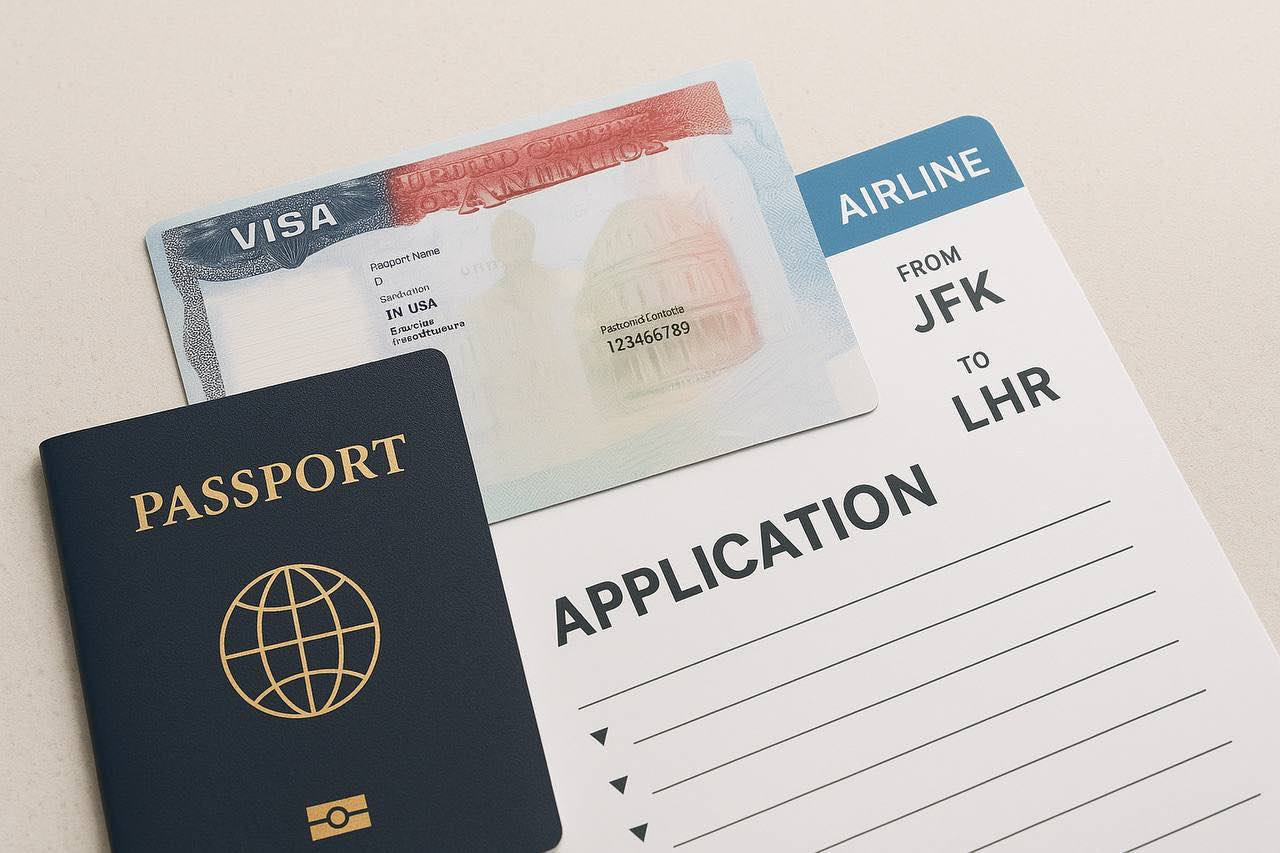

Student Visa Applications: One Mistake Could Cost $2,500 — How to Get Your Documents Right
One wrong tick in your application, and suddenly, you could lose hundreds — or even thousands — of dollars. Sounds like a nightmare? Unfortunately, for many students applying to study abroad on their own, it’s all too real.
Often, the cost of a mistake isn’t just financial — it can set back an entire academic year. A visa refusal can mean losing tuition and accommodation fees, paying again for re-submission, and wasting valuable time that could have been spent studying.
In this article, we’ll outline the five most common mistakes that can lead to a visa refusal and provide practical tips to help you avoid them.
Contents:
- Why mistakes in a visa application are so costly?
- The 5 most common student visa mistakes
- Checklist: how to properly prepare your visa documents
- Why it’s better to rely on experts?
Why Mistakes in a Visa Application Are So Costly?
Let’s break down the main sources of financial loss a student may face if their visa is denied.
1. Visa fees and consular charges. Visa fees are non-refundable. For example, the cost of a student visa for Dubai can reach $2,500, which is a significant sum. At the same time, refusal rates in many countries are high: according to the U.S. Department of State, 41% of student visa applications were rejected in 2023–2024.
2. Non-refundable university deposits. Many universities require non-refundable deposits, which must be paid at the time of admission — before your visa is even issued. For example, Wingate University requires a $2,200 non-refundable tuition deposit. If your visa is denied, this money is lost.
3. Other expenses (accommodation, flights, etc.). Costs such as translation and notarization services, medical certificates, official document translations, exams (TOEFL, IELTS, etc.), pre-booked flights, and accommodation are usually non-refundable.
4. Time is money. If your visa is not issued on time or your application is denied, you won’t be able to start your studies as planned. Consequences may include:
- A delay of six months or even a full year, possibly increasing tuition costs;
- Missing the opportunity to enroll in certain programs with strict deadlines;
- The need to resubmit documents and pay fees again.
5. Hidden risks. Errors, inconsistencies, or false information on your application leave a “mark” on your visa history, reducing your chances on future attempts. When reapplying, you may be asked to provide additional documents for closer scrutiny — which means more time, money, and stress.
The 5 Most Common Student Visa Mistakes
1. Incorrectly completed application. Even a small typo can raise doubts with the visa officer and lead to a refusal. If the information in your application doesn’t match your documents, your application is automatically considered unreliable.
2. Incomplete document package. Missing even a single certificate or confirmation — such as health insurance or an acceptance letter — can make your application unacceptable. Consulates do not review “incomplete” applications, and application fees are non-refundable.
3. Errors in translations and notarizations. All documents must be professionally translated and notarized; otherwise, they may be rejected. Mistakes in translating an academic transcript or a bank statement can cast doubt on the authenticity of your documents.
4. Weak financial evidence. The ability to cover tuition and living expenses is a key requirement for obtaining a visa. If bank statements are outdated, amounts are insufficient, or documents appear unreliable, the application is almost certainly going to be rejected.
5. Missing deadlines. Even a perfectly prepared package won’t help if you miss the submission deadline. Consulates strictly enforce deadlines, and late submissions often result in automatic refusal.
Checklist: How to Properly Prepare Your Visa Documents
1. Check the latest consulate requirements. Every consulate or embassy has its own nuances — required documents, application format, photo specifications, deadlines—which can differ slightly. Visit the official website of your consulate to ensure you have the most up-to-date information.
2. Prepare translations in advance. Documents must be translated by a certified translator and notarized. Since this process takes time, do not leave translations or notarization to the last minute.
3. Make multiple copies of all documents. Visa centers usually require both originals and copies. Copies are typically uploaded online during application submission, while originals are presented at the visa interview. Make sure all copies are clear and legible.
4. Check document expiry dates. Many documents have a limited validity period. For example, bank statements are usually valid for 30–60 days. Medical certificates, academic transcripts, and diplomas must be current and comply with the required format.
Important: Even the most careful student is not immune to mistakes. A single outdated certificate, incorrect translation format, or mismatch between the application and passport data can be grounds for refusal.
Why It’s Better to Rely on Experts?
By entrusting the preparation and review of your documents to student support specialists, you gain several key advantages:
- Save time and reduce stress. Experts know which documents are mandatory, which translations and notarizations are required, and how to fill out applications without mistakes. This reduces the risk of refusal and allows students to focus on preparing for their studies.
- Guaranteed accurate documentation. Specialists check every detail — from matching passport and application data to ensuring certificates are up-to-date and translations are correct. Even minor errors are identified in advance.
- Support at every step. Professionals assist with any questions that arise, monitor deadlines, and clarify consulate requirements — from the moment you submit your documents to the moment your visa is issued. This lowers the likelihood of refusal and helps avoid having to resubmit your application.
- Financial “insurance”. The cost of professional support is usually much lower than the potential losses. For example, if a student makes a mistake with a Dubai visa, it could cost up to $2,500 — and that’s just for the visa, not including other expenses. Are you willing to risk that much?
During a personal consultation with an ED-EX.com expert, you’ll get:
- an evaluation of your profile (academic performance, language skills, etc.) to understand your chances of admission;
- an overview of the education system in the countries you’re considering;
- clear answers to your questions about applying, studying, and living abroad;
- a personalized action plan — which exams to take, what documents you’ll need, and how we’ll guide you through every step of the process.
Don’t risk your future — schedule a consultation today.
Submit a request via your personal account, on the page of your chosen university, or by emailing us at support@ed-ex.com.
All About Education Abroad and Beyond


How do I apply for a Bachelor's degree through ED-EX.com?


